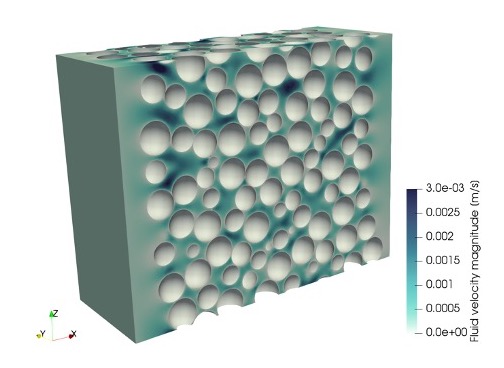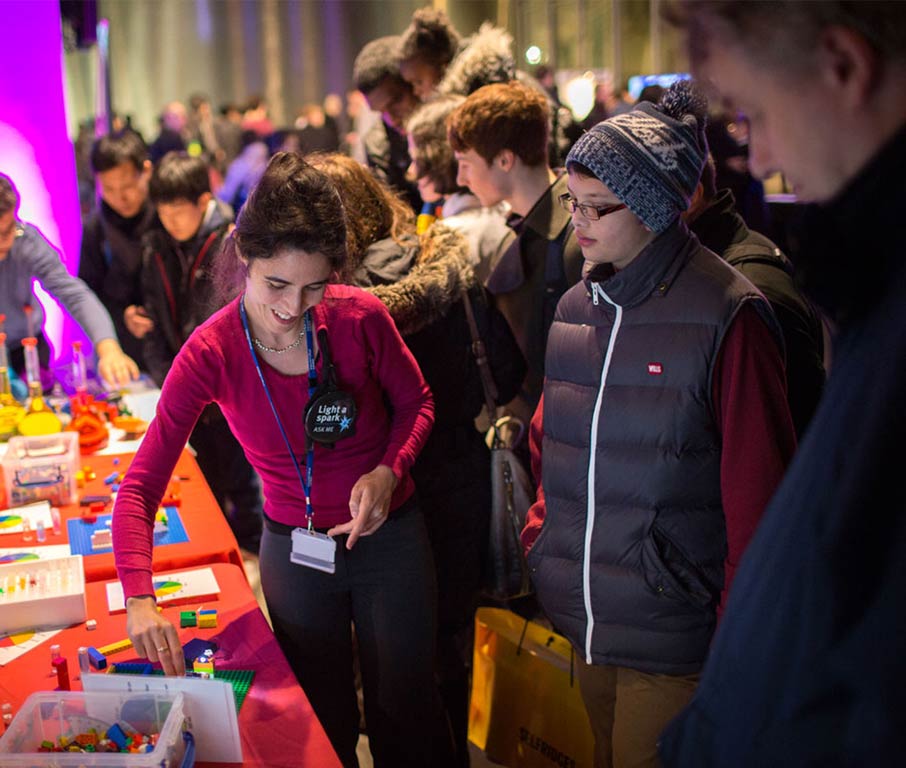MATHEGRAM: Multiscale analysis of thermomechanical behaviour of granular materials

MATHEGRAM: Multiscale analysis of thermomechanical behaviour of granular materials
MATHEGRAM was an Initial Training Network funded by the European Union’s Horizon 2020 research and innovation programme under the Marie Skłodowska-Curie grant agreement MATHEGRAM No 813202. This was multidisciplinary and inter-sectoral consortium consisting of 10 leading academic and non-academic beneficiaries from six EU countries. The project was led by Prof. Charley Wu, University of Surrey.
At Imperial College the team members were:
- Marina Bortolotto (ESR6)
- Dr. Tokio Morimoto (ESR7). (Dr. Morimoto is now based at the University of Tokyo, Japan.).
Marina Bortolotto has worked to:
- Understand the link between thermal changes at the particle scale and overall thermo-mechanical response of granular media through thermal characterisation experiments in a controlled-stress environment
- Develop a dataset suited to validation of thermal particulate DEM codes.
Tokio Morimoto worked to:
- Perform DEM modelling of thermal triaxial tests and to advance understanding of the link between contact configurations and thermal performance of granular materials
- Simulate tests on model granular materials
- Explore the sensitivity of thermal response to fabric and packing configuration.
Our research findings are documented in the following:
Morimoto, T., B Zhao, DMG Taborda, C O'Sullivan (2022) Critical appraisal of pore network models to simulate fluid flow through assemblies of spherical particles Computers and Geotechnics 150, 104900. https://doi.org/10.1016/j.compgeo.2022.104900
Morimoto, T., O’Sullivan, C., Taborda, D.G. (2022) Exploiting DEM to Link Thermal Conduction and Elastic Stiffness in Granular Materials ASCE Journal of Engineering Mechanics, 148(2) 10.1061/(ASCE)EM.1943-7889.0002054 https://doi.org/10.1061/(ASCE)EM.1943-7889.0002054
Morimoto, T., O’Sullivan, C., Taborda, DMG (2021) Analytical and DEM studies of thermal stress in granular materials Powders & Grains 2021 – 9th International Conference on Micromechanics on Granular Media EPJ Web of Conferences 249, 14018 (2021) https://doi.org/10.1051/epjconf/202124914018
Contact Geotechnics
Geotechnics
Civil and Environmental Engineering
Skempton Building
Imperial College London
South Kensington Campus
London, SW7 2AZ
Telephone:
+44 (0)20 7594 6077
Email: j.otoole@imperial.ac.uk
Alternatively, you can find a member of Geotechnics staff on the Department of Civil and Environmental Engineering website.
Follow us on Twitter: @GeotechnicsICL
We are located in the Skempton Building (building number 27 on the South Kensington Campus Map). How to find us
